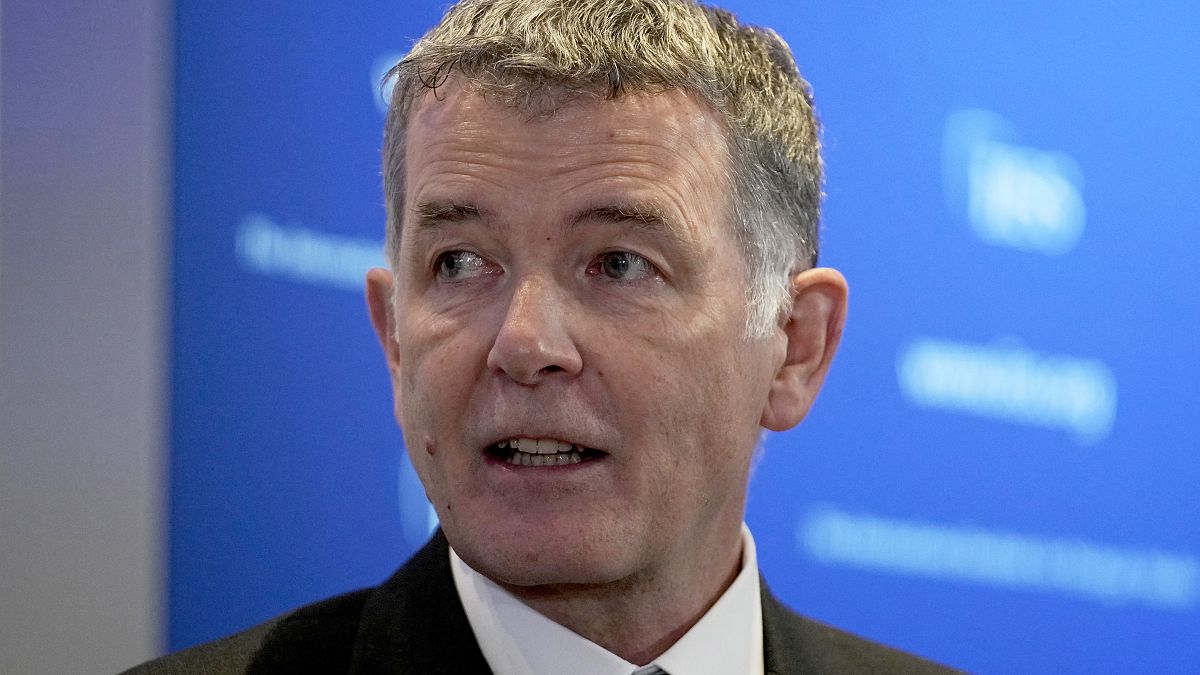In a rare public speech, MI6 chief Richard Moore said that the future of spying lies in human intelligence and intuition despite the proliferation of artificial intelligence (AI).
Artificial intelligence will change the world of espionage, but it won’t replace the need for human spies, said Richard Moore, director of the UK’s foreign intelligence agency on Wednesday.
In a rare speech delivered in Prague on evolving threats to the West from Russia and Iran, the head of Britain’s MI6 intelligence agency said that “some” had been asking whether AI “will put intelligence services like mine out of business,” to which he responded that, the “human factor” would remain crucial.
“In fact, the opposite is likely to be true," he said.
"As AI trawls the ocean of open source, there will be even greater value in landing, with a well-cast fly, the secrets that lie beyond the reach of its nets,” he added.
In other words, while AI can sift through vast amounts of open-source data, there are still valuable insights and secrets that may remain hidden and beyond the grasp of AI's algorithms for spies to catch and decipher.
Moore, who had previously warned that the West was falling behind its rivals in the AI race, said that “the unique characteristics of human agents in the right places will become still more significant,” highlighting spies’ ability to “influence decisions inside a government or terrorist group.”
“My teams are now using AI to augment – but not replace – their own judgement about how people might act in various situations. They are combining their skills with AI and bulk data to identify and disrupt the flow of weapons to Russia for use against Ukraine,” he said.
In the future, it’s possible that the technology might be able to predict human behaviour better than humans can, he added, “but there will always be an extraordinary bond that allows one person genuinely to confide in another, united by a sense of common humanity and purpose”.
The UK determined to stand against hostile AI use
For the UK’s intelligence community, understanding the AI threat while embracing its potential for good has become a top priority.
“So let me say with clarity and conviction: my service, together with our allies, intends to win the race to master the ethical and safe use of AI,” he said, adding that other countries, such as China, had “inherent advantages,” which his country would “never be able to match - or would never wish to.”
“China benefits from sheer scale: AI, in its current form, requires colossal volumes of data; the more data you have, the more rapidly you can teach machine-learning tools. China has added to its immense data sets at home by hoovering up others abroad.”
“And the Chinese authorities are not hugely troubled by questions of personal privacy or individual data security. They are focused on controlling information and preventing inconvenient truths from being revealed.”
MI6 chief on Russia, China and Iran
Speaking from the British ambassador’s residence in Prague, Moore also stated that President Vladimir Putin was failing to achieve his war aims, accused Russia of “imperialism” in Africa and called out Iran for fuelling further conflict in Ukraine by supplying Russia with drones and other weapons.
“In the last month, Ukraine has liberated more territory than Russia captured in the last year,” he said, adding that now more than ever “it’s even more vital for Ukraine’s friends to press on and sustain their support”.
“Some nations, by contrast, have reduced themselves to being accomplices of the aggressor,” he added, criticising Iran’s decision to supply Russia “with the suicide drones that mete out random destruction to Ukraine’s cities.”
“Iran seeks cash by selling arms to Russia to enable them to kill Ukrainian soldiers and civilians,” he said, “Russia, in turn, seeks cash by hawking their mercenaries around Africa.”
Yet for all the immediate challenges posed by Putin’s aggression, the MI6 intelligence chief said that Russia “is not the single most important strategic focus” of his service. “We now devote more resources to China than anywhere else, reflecting China’s increasing global significance.”
Speaking publicly about spycraft is still something of a novelty for Britain’s intelligence services. The government refused even to confirm the existence of MI6 until 1992, and public speeches by its leaders are rare.
Moore’s only other public speech since becoming head of the MI6 was almost three years ago when he also touched on the power and threat posed by AI.
In the November 2021 address, he accused the West of being slow to reckon with AI’s disruptive impact and of lagging behind adversaries who are “pouring money and ambition” into AI and other cutting-edge technologies.
In that speech, he said China was the agency’s “single greatest priority” and said Britain and its allies “must stand up to and deter Russian activity which contravenes the international rules-based system.”
Three months later, Russia invaded Ukraine.



